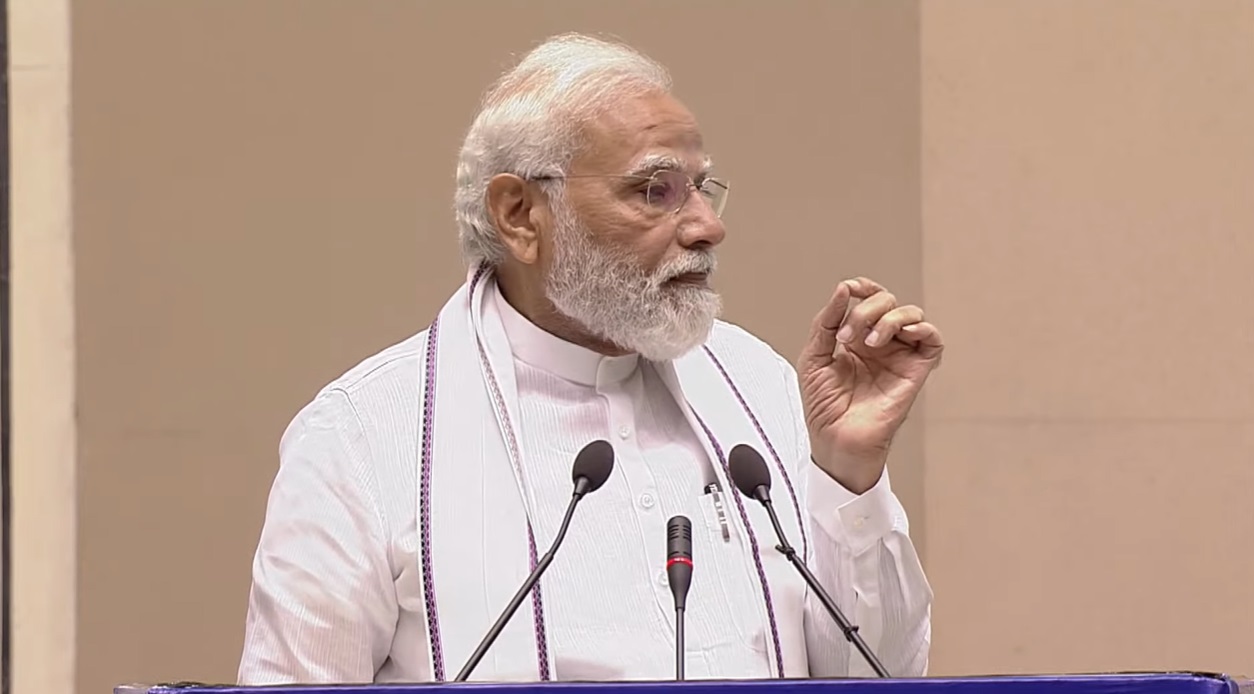New Delhi, 30 April: Prime Minister Narendra Modi on Saturday said that the government is making every effort to improve the judicial system. He said that there is a need to promote local languages in the courts to instil confidence in the judiciary system among the common citizens of the country.
Prime Minister Modi was addressing the inaugural session of the Joint Conference of Chief Ministers of States and Chief Justices of High Courts at Vigyan Bhawan.
He said that in the ‘elixir of independence’, our vision should be for a justice system where justice is easy, speedy and available to all.
Describing the intricacies of the law as a serious challenge to the common man, the Prime Minister said that in 2015, we had identified about 1800 such laws which had become irrelevant. Of these, which were the laws of the Centre, we abolished 1450 such laws. But, only 75 laws have been abolished by the states.
The Prime Minister appealed to all Chief Ministers and Chief Justices of High Courts to review the cases of undertrials on a priority basis on the basis of human sensibilities and the law.
He said that there are about 3.5 lakh prisoners in the country who are facing trial and are in jail. Most of them are from poor or ordinary families. He said that every district has a committee headed by the District Judge to review these cases so that if possible they can be released on bail.
He said that mediation is also an important tool for settlement of pending cases in the courts and especially at the local level. There is a thousand of years old tradition of settlement of disputes through mediation in our society.
The Prime Minister said that while the role of the Court in our country is that of the guardian of the Constitution, the Legislature represents the aspirations of the citizens. I am sure that this confluence of these two sections of the Constitution, this balance will prepare the roadmap for an effective and time bound judicial system in the country. These 75 years of independence have continuously clarified the role and responsibilities of both the court and the executive. Wherever necessary, this relationship has continuously evolved to give direction to the country.
Modi stated that in 2047, when the country will complete 100 years of its independence, then what kind of justice system would we like to see in the country? How do we make our judicial system so capable that it can fulfil the aspirations of India of 2047, it can live up to them, and this question should be our priority today.
He said that the Government of India also considers the potential of technology in the judicial system as an essential part of the Digital India mission. For example, the e-courts project is being implemented today in mission mode. Today digital payments are becoming common in small towns and even villages. Out of all the digital transactions that took place in the world last year, 40 percent of the digital transactions took place in India.
The Prime Minister said that nowadays subjects like Block-chain, Electronic Discovery, Cyber Security, Robotics, AI and Bioethics are being taught in Law Universities in many countries. In our country also legal education should be according to these international standards, it is our responsibility.
He said that we need to encourage local languages in the courts. This will increase the confidence of the common citizens of the country in the justice system; they will feel connected to it.





